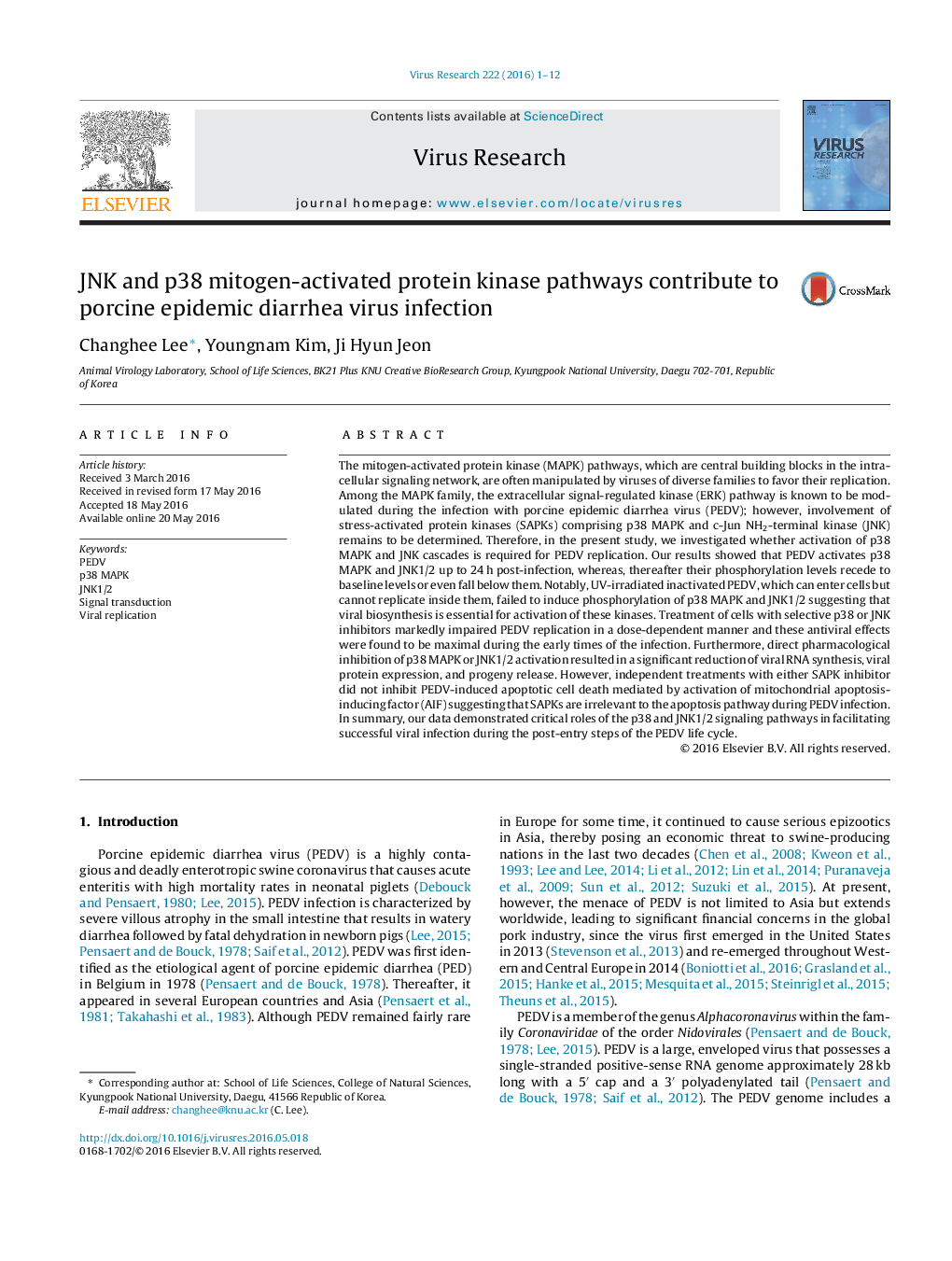| Article ID | Journal | Published Year | Pages | File Type |
|---|---|---|---|---|
| 3427816 | Virus Research | 2016 | 12 Pages |
•PEDV infection activated p38 MAPK and JNK1/2 in vitro.•UV-inactivated virus failed to induce p38 MAPK and JNK1/2 activation.•Pharmacological inhibition of p38 MAPK or JNK activation impaired PEDV replication.•SAPK cascades do not affect the apoptosis pathway during PEDV infection.•PEDV exploits the p38 MAPK and JNK signaling pathways for optimal replication.
The mitogen-activated protein kinase (MAPK) pathways, which are central building blocks in the intracellular signaling network, are often manipulated by viruses of diverse families to favor their replication. Among the MAPK family, the extracellular signal-regulated kinase (ERK) pathway is known to be modulated during the infection with porcine epidemic diarrhea virus (PEDV); however, involvement of stress-activated protein kinases (SAPKs) comprising p38 MAPK and c-Jun NH2-terminal kinase (JNK) remains to be determined. Therefore, in the present study, we investigated whether activation of p38 MAPK and JNK cascades is required for PEDV replication. Our results showed that PEDV activates p38 MAPK and JNK1/2 up to 24 h post-infection, whereas, thereafter their phosphorylation levels recede to baseline levels or even fall below them. Notably, UV-irradiated inactivated PEDV, which can enter cells but cannot replicate inside them, failed to induce phosphorylation of p38 MAPK and JNK1/2 suggesting that viral biosynthesis is essential for activation of these kinases. Treatment of cells with selective p38 or JNK inhibitors markedly impaired PEDV replication in a dose-dependent manner and these antiviral effects were found to be maximal during the early times of the infection. Furthermore, direct pharmacological inhibition of p38 MAPK or JNK1/2 activation resulted in a significant reduction of viral RNA synthesis, viral protein expression, and progeny release. However, independent treatments with either SAPK inhibitor did not inhibit PEDV-induced apoptotic cell death mediated by activation of mitochondrial apoptosis-inducing factor (AIF) suggesting that SAPKs are irrelevant to the apoptosis pathway during PEDV infection. In summary, our data demonstrated critical roles of the p38 and JNK1/2 signaling pathways in facilitating successful viral infection during the post-entry steps of the PEDV life cycle.
